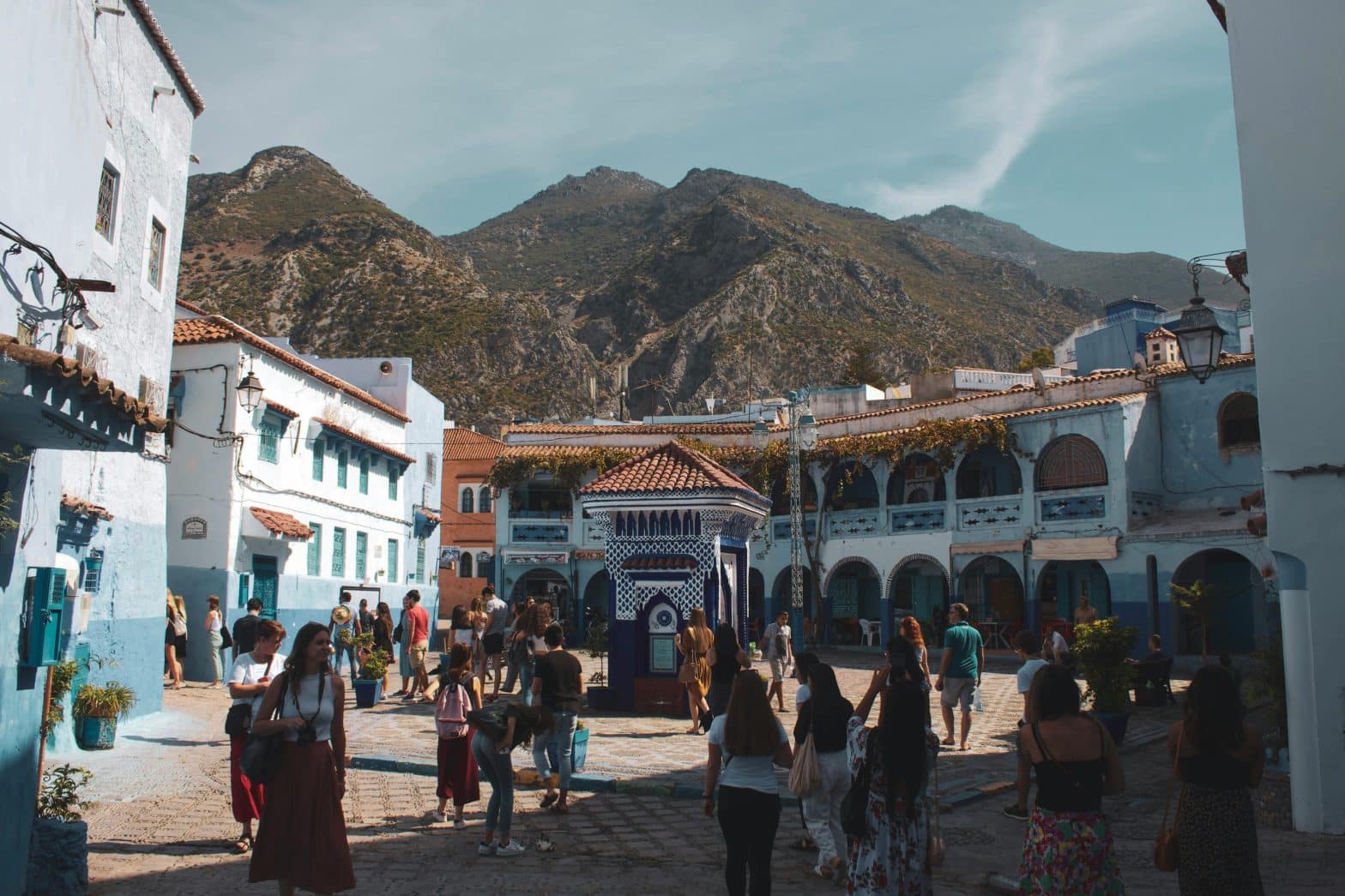Marrakesh, Casablanca, Rabat … Morocco is a country that has captured the imagination of many people that dream about moving there, but no one moves to Morocco by chance. No matter what captivating city you decide on, the choice is motivated by the sunny and authentic lifestyle, professional opportunities or the desire to reconnect with one’s roots.
But moving abroad takes preparation. In this guide, we share everything you need to know to settle in Morocco smoothly and with confidence.
Why move to Morocco?
Pros
- A temperate climate, mostly sunny throughout the year
- A welcoming population (social integration is a real pleasure)
- The cost of living is more affordable than in many European countries
- Need we really mention the food? Couscous, tagines, gazelle horns … in short, an explosion of flavours
- A country geographically close to certain European capitals (the flight between Rabat and many parts of Europe takes an average of 3 hours, less than 1.5 hours to Lisbon, etc.)
- An ideal lifestyle whether you are alone or with your family
- A country with a strong culture (architecture, crafts, traditions, etc.)
And the cons?
- Stress behind the wheel is often a reality … because, yes, the rules of the road are not always respected
- The quality of healthcare is sometimes limited, especially in the public sector
- The job market can sometimes be difficult to access depending on the sector and the city you choose
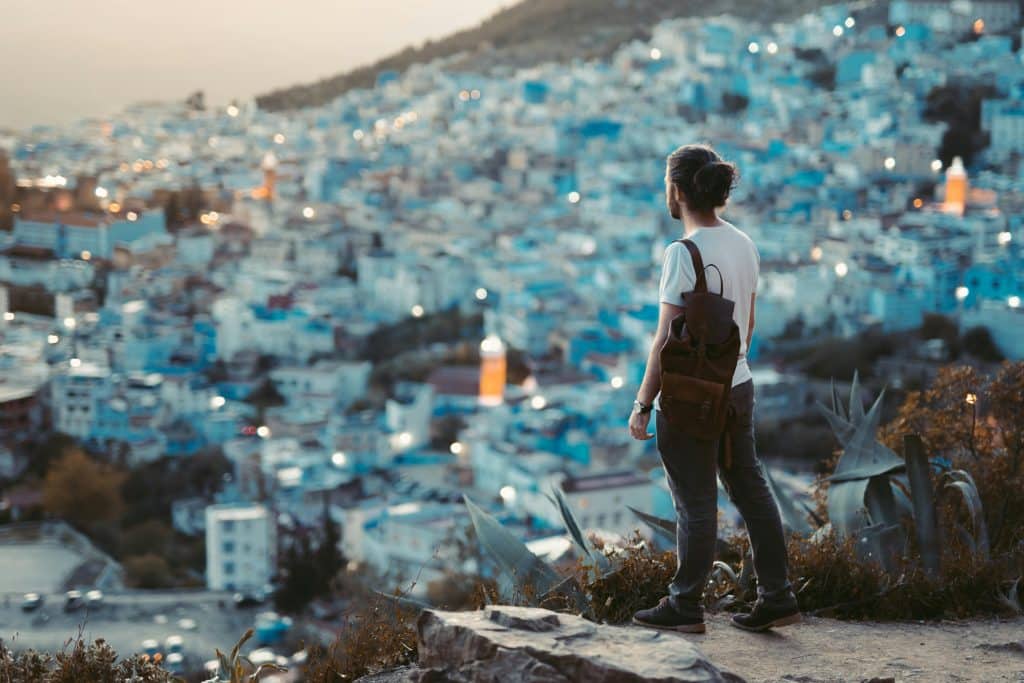
Administrative procedures for moving to Morocco
If you are a European citizen, including the UK, you do not need a visa for stays of less than 90 days.
For non-European nationals, a short-stay visa is required. This process has been simplified by the Kingdom of Morocco with the launch of an e-visa (electronic visa) in 2022.
Applications can be made online on the official website: https://www.acces-maroc.ma. This visa is valid for a maximum of 90 days, and applications are processed within 10 working days on average.
To live in the country for longer and settle there permanently, you must be registered, i.e. obtain a residence card, which is generally valid for one year and renewable.
The country offers several types of residence cards, depending on the profile of each national:
- The work residence card: both a residence permit and a work permit, this card is issued to nationals who have a Moroccan employment contract.
- The residence card for family reunification: issued to children and spouses of nationals working in the country;
- Retirement residence card: this is intended for retirees who can prove that they have sufficient financial resources to live independently in the country.
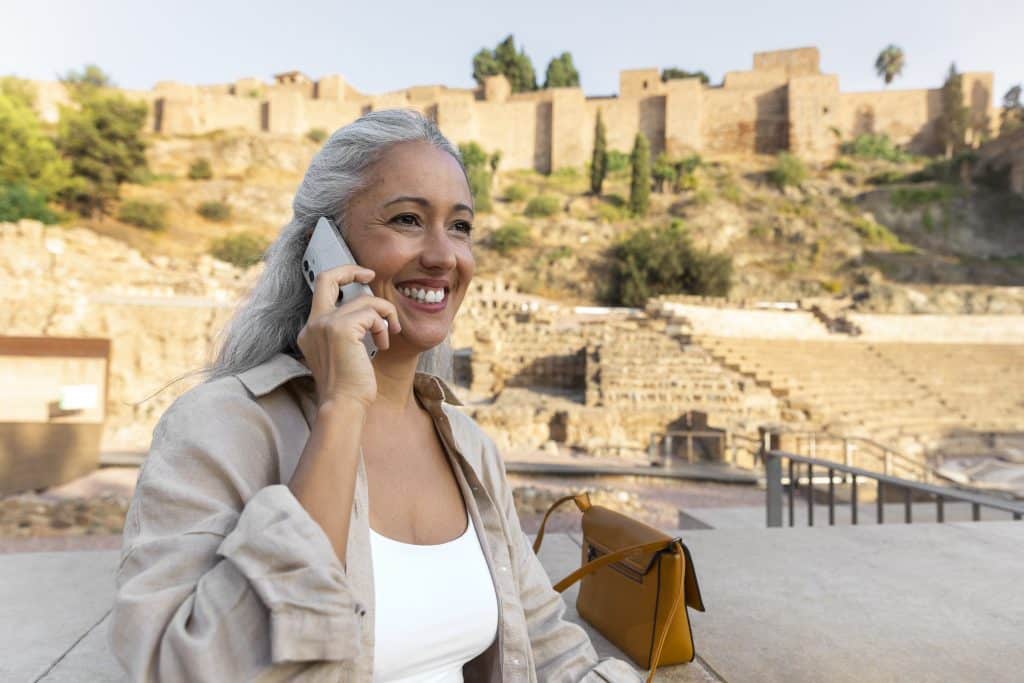
Morocco also offers a residence permit for students who wish to pursue higher education at a Moroccan institution.
To obtain your card, you must submit an application to the police headquarters in the Moroccan city where you wish to settle. Please note that you must do this within 15 days of your arrival.
Good to know: after three years of residence in the country, you can obtain a residence permit, valid for 10 years.
Where to live in Morocco?
To say the least, certain cities are very popular among expats. Here are five top destinations to settle down:
Casablanca: the industrial and economic heart of the country, Casablanca attracts many expats. A cosmopolitan coastal city, it offers an ideal living environment.
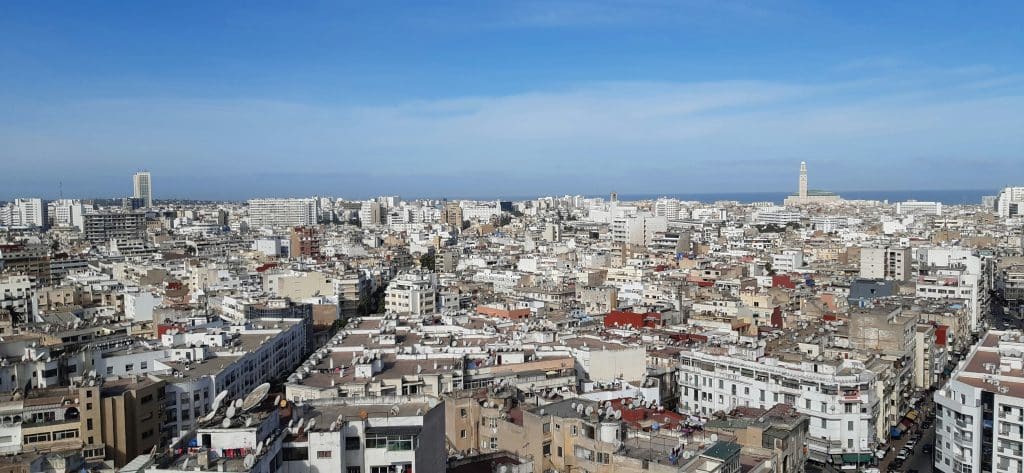
Rabat: the Moroccan capital is ideal for family life. It has a stable job market, many international private schools and plenty of activities for young and old alike.
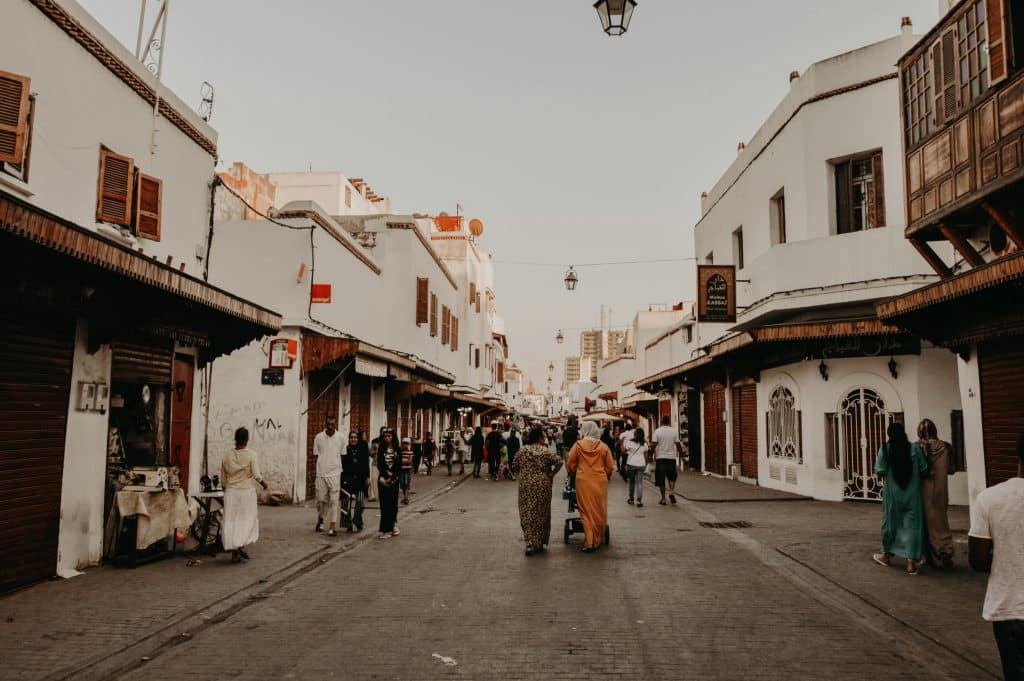
Marrakech: the famous ‘red city’ is home to a large community of expatriates. It is the most visited city in Morocco, with neighbourhoods featuring traditional architecture alongside modern districts.
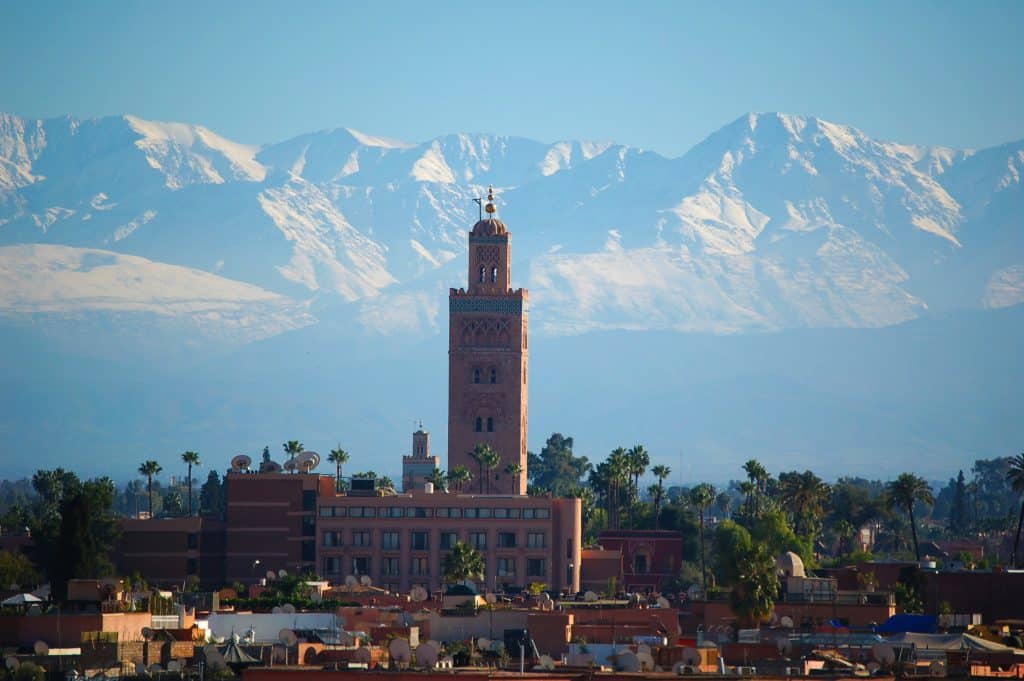
Tangier: less well known than its counterparts, Tangier is nevertheless a very popular destination for expatriates. Located at the entrance to the Strait of Gibraltar, this port city often has a lower cost of living than other cities.
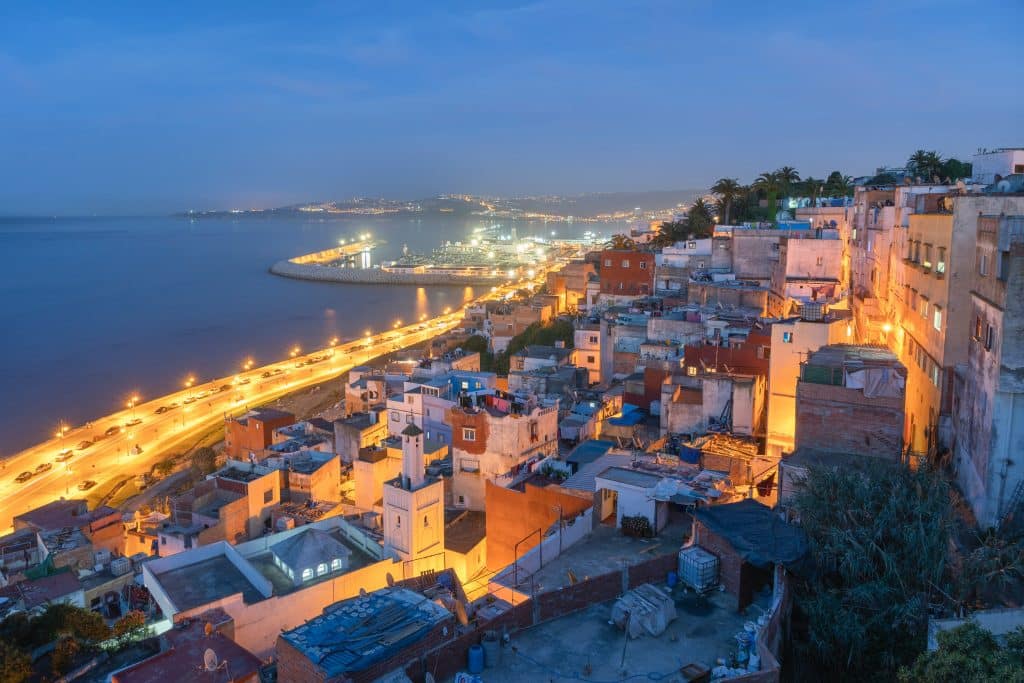
Agadir: this seaside resort particularly appeals to foreign retirees looking to feel like they are on holiday all year round.
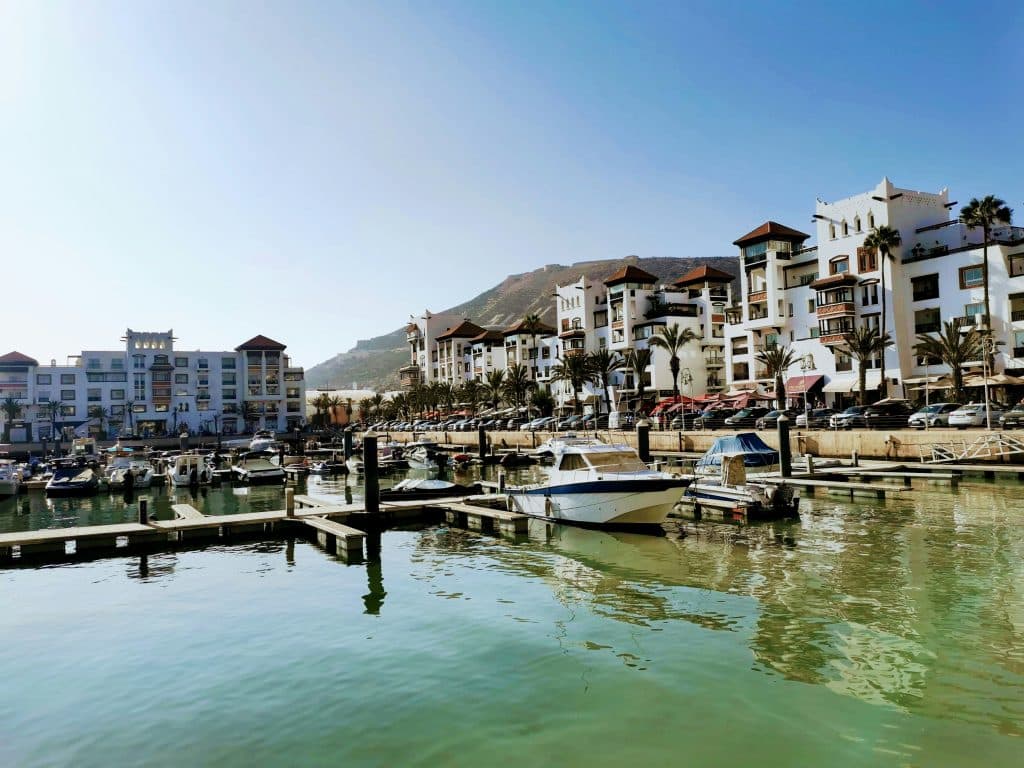
The cost of living in Morocco
The cost of living in Morocco is relatively low compared to most European countries. For example, it is 55% lower than in France and nearly 60% lower than the cost of living in the United Kingdom.
A person living alone in Morocco spends an average of £700 per month, including rent. A family of four should budget for £1,500 per month.
But beware, the budget you need to live there can quickly increase depending on the city you live in and your lifestyle. For example, living in Casablanca costs on average 13% more than in Marrakech.
The average salary in the country is 232,000 Moroccan dirhams, or £20,000 per year.
Getting around the country
Buses criss-cross Morocco from north to south, both for inter-city and urban journeys. Taxis are plentiful in cities, and Rabat and Casablanca have tram networks.
It is also possible to travel by train for long distances, particularly with the ONCF (Office National des Chemins de Fer du Maroc). Domestic flights are also frequent, connecting distant cities.
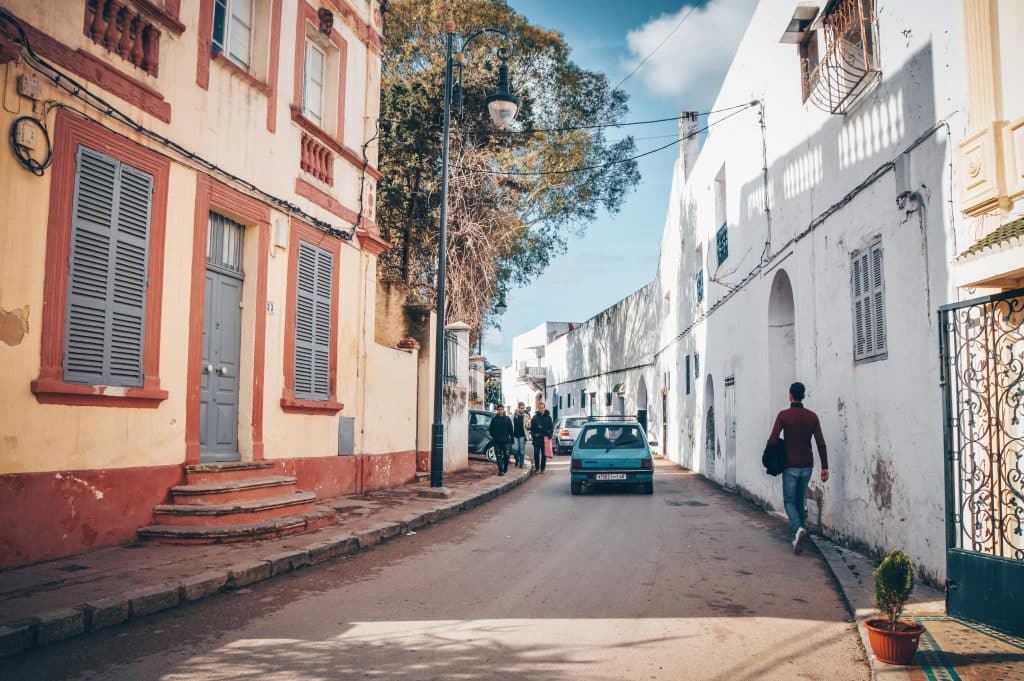
Expatriates may also choose to buy a car (or rent one initially) for their travel needs. But let’s be honest: it takes some time to get used to driving in Morocco. Driving rules are often ignored, much to the chagrin of foreigners.
Moving to Morocco with children
If you are planning to move abroad with your family, Morocco offers an ideal quality of life!
First and foremost, the kingdom boasts a rich natural environment and significant cultural heritage. There is no shortage of things to do, from days at the beach to trips to the zoo and visits to historical sites.
In terms of education, Morocco ranks at the bottom of the latest Global Education Report 2025.

However, many private schools raise the bar by offering high-quality education. Among the most reputable schools are:
- Lycée René Descartes in Casablanca
- American School of Marrakech
- Rabat American School
3 things to know about working in Morocco as an expat
Career opportunities … but mainly for locals
The job market in Morocco is dynamic, with many opportunities, especially in large cities.
However, recruiters often favour local candidates, particularly those who are bilingual (Arabic and French). This is particularly true in sectors that recruit without requiring high qualifications, such as sales
On the other hand, Moroccan companies are keen to welcome foreign candidates with advanced qualifications, particularly for positions of responsibility.
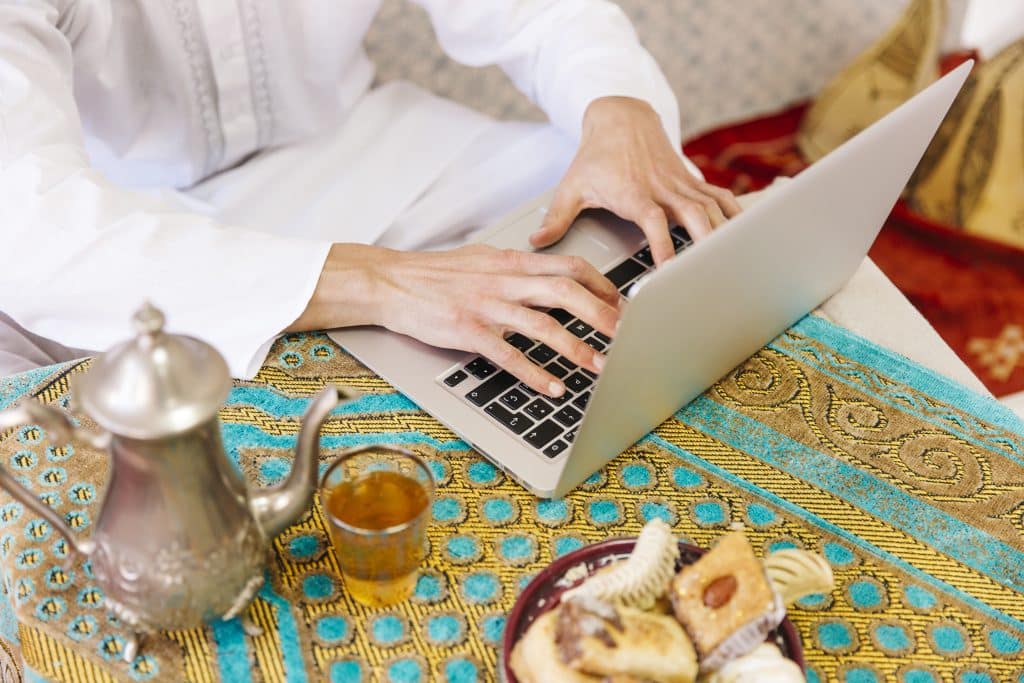
Some sectors recruit more than others
Certain sectors are booming in Morocco and offer numerous business opportunities:
- Telecommunications
- Tourism
- Transport
- Construction
- Energy
- Pharmaceutical industry
An attractive tax system
Morocco has a tax bracket system similar to that in many other European countries, with a lower overall rate. This ranges from 10% to 38% depending on income level.
Doing business in Morocco is possible!
Morocco encourages investment by making it as easy as possible to set up a business, both for locals and foreigners (those with a valid visa or nationals authorised to stay for up to three months without a visa).
There are many advantages to starting a business as an expat in Morocco:

- You can choose from several legal statuses (sole proprietorship, self-employed, limited liability company, public limited company, simplified joint stock company, etc.);
- New businesses are exempt from corporation tax for the first five years;
- You also benefit from a VAT exemption on capital goods for the first 36 months;
- Not to mention that labour costs remain very competitive compared to most European countries.
Starting a business in Morocco involves three steps: choosing a legal status, obtaining a tax identification number and registering with the CNSS (Caisse Nationale de Sécurité Sociale).
What if you don’t speak Arabic?
Morocco has two official languages (and no, French is not one of them!): Arabic and Amazigh. That said, French is widely spoken, with around 13.5 million French speakers. Not speaking Arabic or Amazigh is not an obstacle to living in Morocco. If you speak French, you can get by in everyday life and integrate more easily into society.
However, if you don’t speak any of these languages, we recommend taking Arabic lessons in the long term. This can only be an advantage for a successful expatriation!
The healthcare system in Morocco
The Moroccan healthcare system is supported by several health insurance schemes:
- Compulsory health insurance (AMO) for all public and private sector employees;
- The Medical Assistance Scheme (RAMED) for disadvantaged people on low incomes;
- Mutual insurance companies and private insurance.
The quality of healthcare in Morocco varies depending on the establishment. Private hospitals and clinics generally offer higher quality services, with significantly shorter waiting times than in the public sector.
This is why most expatriates opt for private health insurance. Among the most popular options, international private health insurance is the clear leader.
Foyer Global Health specialises in health cover for expatriates. By taking out our insurance, you and your family will benefit from:
- Fast and efficient care
- Access to private establishments of your choice
- Coverage valid in Morocco, in your country of origin and internationally
- Teleconsultation service
- Mental health support with a dedicated coach, because expatriation can be an emotional experience
- ‘Get Fit’ programme to help you feel good about yourself!
